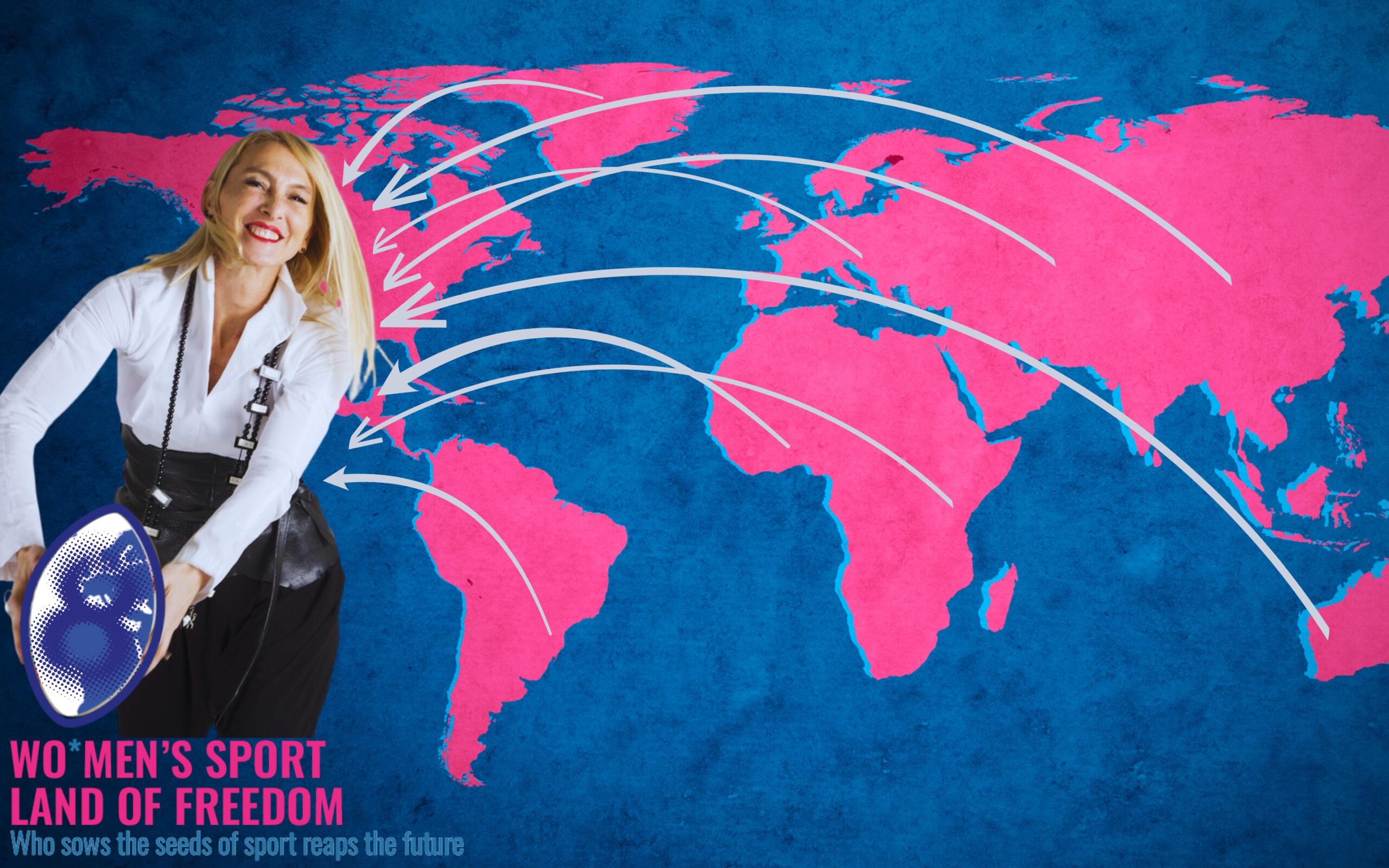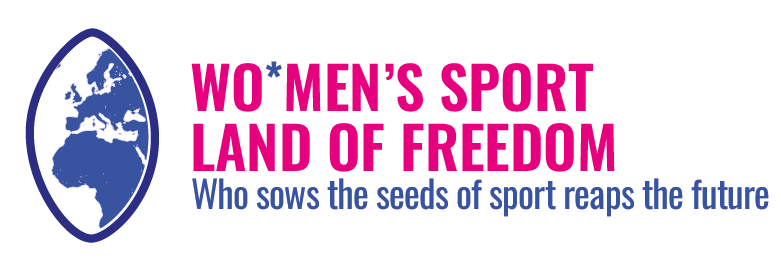
SOUTH KOREA: THANKS TO RUGBY I LEARNED TO GET BACK UP AFTER SETBACKS WITHOUT DESPAIRING.
“Thanks to rugby I learned to get back up after setbacks without despairing”

Thanks to:
SoYoung Ahn
Medical Science Committee in Korea Rugby Union
- The history of the women’s movement in South Korea
- Testimonials
- Reading time: 7 minutes
SOUTH KOREA - Find out more
South Korea is a democratic republic in East Asia with about 51.2 million inhabitants (2024), in a highly urbanized society marked by one of the lowest fertility rates in the world (0.72 children per woman). Women hold about 19% of seats in the National Assembly, one of the lowest shares among developed countries. Their labor force participation (women aged 15–64) stands around 56%, compared to over 72% for men, showing a persistent gender gap. The pay gap is one of the highest in the OECD: women earn on average more than 30% less than men, and few occupy top managerial roles. While gender inequality remains strong, policies such as extended parental leave, childcare support, and measures against all-male corporate boards are slowly introducing change, though cultural and corporate shifts remain slow. (SOURCE: Statistics Korea demography; IPU Parline; data.unwomen.org; World Bank Gender Data Portal; OECD & RAND labor reports; Wikipedia – Women in South Korea; Financial Times; Guardian)
HISTORY OF THE COUNTRY
1. When did the women’s rugby movement start in your country and what is its history? How is rugby structured in your country?
The women’s rugby movement in South Korea began in the late 1990s and early 2000s. The first official women’s rugby team was founded in 1996 at Yongin University, marking the formal start of women’s rugby in the country. In the years that followed, other universities and clubs formed teams, gradually increasing participation. The South Korean Women’s National Rugby Team made its international debut in 2007 at the Asian Rugby Sevens competition. Since then, women’s rugby in South Korea has developed with a growing number of players, clubs, and some institutional support. However, the sport remains underdeveloped compared to men’s rugby, with challenges such as limited funding, few training opportunities, and little public awareness. In recent years, the women’s national team has been dissolved. Although the Korea Rugby Union has stated an intention to reform it, there is no clear timeline or certainty. Many former players have since pursued careers as coaches or referees, while others transitioned into different sports or left the sporting sector altogether. The sport’s growth has been slow, hindered by limited investment, lack of technical staff, and low media coverage. While there was a push in the 2000s and 2010s to expand participation, women’s rugby in South Korea today remains very limited, with no active national team and no official women’s rugby clubs.
2. Do you think playing rugby has a social impact for a woman in your country?
In South Korea, even men’s rugby has only recently gained some public recognition, largely due to exposure from a Netflix documentary. As a result, women’s rugby remains virtually unknown: there is no national team, no established clubs, and almost no media coverage. Because of this lack of visibility, women who play rugby do not yet generate significant social impact or debate. Unlike other countries where female participation in traditionally male sports sparks discussions on gender equality and empowerment, in South Korea women’s rugby is still too underdeveloped to have reached that level of influence.
3. In your opinion, what can rugby give to women in your country?
In South Korea, where rugby is still relatively unknown—especially for women—the sport has the potential to offer much more than athletic performance. Rugby can help women develop both physical and mental resilience. It is a demanding sport that requires strength, endurance, and strategic thinking, giving players confidence, leadership skills, and teamwork experience—qualities that are valuable in any career or life situation. Rugby can also create a sense of community and belonging. Because the women’s rugby scene is small, those who join naturally build strong bonds and support networks, helping to break social barriers and foster inclusivity. Finally, rugby has the power to challenge gender stereotypes in South Korea’s sports culture. While traditional perceptions of femininity remain dominant, rugby shows that women can be strong, competitive, and capable in physically demanding sports just as much as men. Although women’s rugby in Korea is still in its early stages, its potential to inspire confidence, create supportive communities, and challenge social norms makes it a sport worth promoting.
JOURNEYS THROUGH RUGBY
1. When did you start playing rugby and how you discover it?
I first became involved with rugby during my freshman year at university, where I joined as a physical trainer. The coach introduced me to rugby, and I became so interested that I eventually joined the South Korean women’s national team. Earlier in life, when I was seven years old, I lived in the Philippines and first encountered rugby through a cartoon.
2. What has rugby taught you that has impacted your daily life? Can you give me an example of when a rugby mindset was useful?
As a sports science specialist, rugby provided me with valuable experiences that deepened my understanding of my field. Starting as a young woman in a male-dominated environment was challenging: I faced many obstacles and emotional difficulties. But through rugby, I learned perseverance, communication, and persuasion. Most importantly, I learned to get back up after setbacks without despairing. These lessons gave me the resilience to overcome any challenge. Rugby allowed me to connect with professionals worldwide, gaining insights into diverse cultures and unique experiences. These connections broadened my perspective and gave me a global network of support. My passion for rugby also led me to pursue a PhD, focusing on concussion-related brain injuries among rugby players. My research secured government funding and enabled free brain screenings for nearly 100 rugby players. Through rugby, I gained not only scientific knowledge but also essential life skills, self-confidence, and perseverance. Above all, rugby shaped my character, my friendships, and ultimately my life direction. My coach always reminded us: “One for all, all for one.” As an individualistic person, rugby taught me the value of unity and collaboration.
3. Can you give me 3 words that connect rugby to freedom?
Expression – Rugby allows players to express themselves through physicality and strategy.
Resilience – The ability to get back up after being tackled mirrors the freedom to keep pushing forward.
Escape – The rugby field offers release and immersion, freeing you from daily worries.
4. What does live in a land of freedom mean to you?
For me, it means a space where you can experience true liberation and fulfillment. That place is the rugby environment, where I feel happiness and purpose. This is why I continue researching rugby, staying connected with the community, supporting players, and contributing to the sport’s development.
5. What object represents you and why? What is an aphorism that guides your life?
A medical vest represents me best. I was the youngest and the first female medical officer, a qualified World Rugby educator, and later the first female national coach in South Korea. I faced discrimination because of my gender and age, but I never gave up. I kept improving my skills until even those who doubted me recognized my expertise.
“It is better to try and fail than never to try and regret it.”
